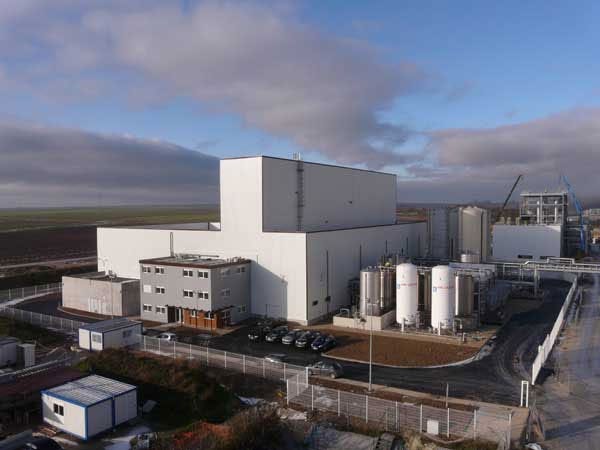Biobased succinic acid manufacturer BioAmber has signed a licensing agreement with Celexion LLC for technology relating to production of nylon component adipic acid and other chemical intermediates. BioAmber has successfully applied its succinic acid purification process to adipic acid, and it will now work with Celexion to use its succinic acid know-how, infrastructure, partnerships, and customer base to accelerate the development of biobased adipic acid.
March 16, 2011
Biobased succinic acid manufacturer BioAmber has signed a licensing agreement with Celexion LLC for technology relating to production of nylon component adipic acid and other chemical intermediates. BioAmber has successfully applied its succinic acid purification process to adipic acid, and it will now work with Celexion to use its succinic acid know-how, infrastructure, partnerships, and customer base to accelerate the development of biobased adipic acid.
BioAmber biobased succinic acid plant. |
BioAmber's biobased succinic acid plant in Pomacle, France. |
Jean-Francois Huc, BioAmber CEO, said in a release that Celexion's metabolic pathway, coupled with his company's novel purification process and scale-up capabilities, gives the partners "a clear path to biobased adipic acid that, like our biobased succinic, is lower cost and has a better environmental footprint than the current petroleum route." BioAmber has what it calls the world's first dedicated, biobased succinic-acid plant and maintains partnerships with Cargill, Mitsui & Co., and DuPont Applied Biosciences. The company maintains a research and development facility in Plymouth, MN with capabilities in molecular biology, fermentation, and analytical chemistry to support its adipic acid program. The company's production plant is in Pomacle, France.
Adipic acid is primarily used as monomer for the production of nylon by a polycondensation reaction with hexamethylene diamine that results in nylon 6,6. It can also be used as a monomer for production of polyurethane, and its esters can be used as plasticizers in polyvinyl chloride.
Celexion LLC is a bioengineering company based in Cambridge, MA that develops platform technologies and products for the pharmaceutical, industrial, agricultural, and life science research sectors. The company's SECANT platform for engineering protein products can be used to synthesize a variety of high-value materials from wastes and other inexpensive precursors.
About the Author(s)
You May Also Like



